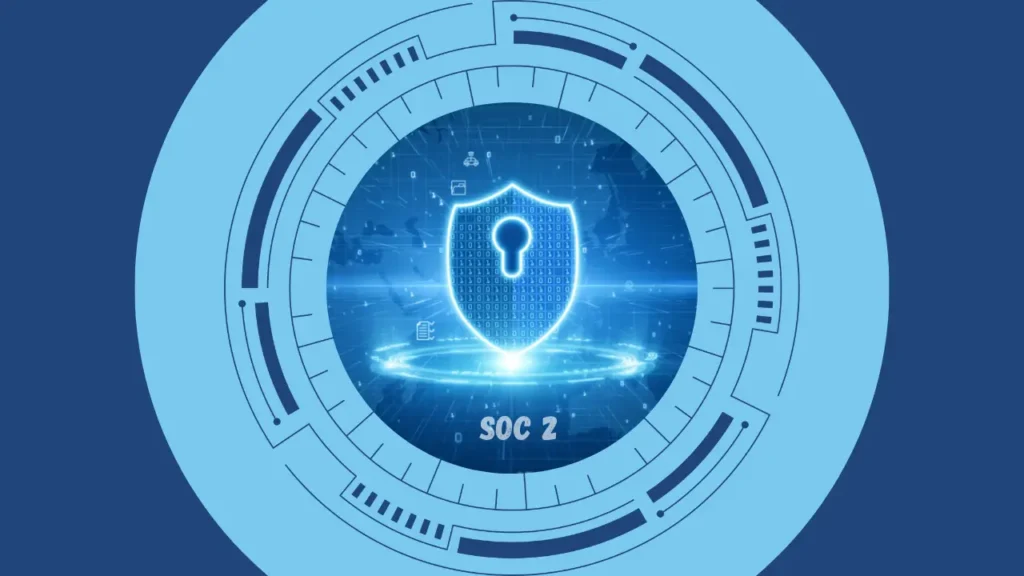As a small or mid-sized business owner or manager, you have a lot on your plate—keeping your customers happy, staffing your organization, managing finances, and ensuring the growth of your business.
If your company handles sensitive customer data or plans to provide services to larger enterprises, consider SOC (System and Organization Controls) compliance to acquire more customers and reduce your company’s operational risk.
SOC compliance refers to standards the American Institute of Certified Public Accountants (AICPA) designed to ensure that service organizations—such as IT service providers, data centers, and cloud service providers—securely manage customer data.
SOC 2 focuses on operational security, particularly around customer data, and assesses five key areas known as trust services criteria (TSC): security, availability, processing integrity, confidentiality, and privacy.
A SOC 2 report is the final result of a SOC 2 audit, which assesses whether a service provider adheres to specific cybersecurity best practices.
Let’s examine what SOC compliance means for SMBs, why it matters, and how to implement it in a manageable way.
For most SMBs, SOC 2 compliance is the most relevant as it addresses the security of customer data, an area of concern for businesses of any size.
Why SOC 2 Compliance Matters for SMBs
Here are several reasons why SOC 2 compliance can be critical for your SMB:
Customer Trust: If you hold customer data, your customers want to know their data is secure. SOC 2 compliance demonstrates that your business takes data security seriously and adheres to recognized standards.
Contractual Requirements: If you provide services to larger organizations, compliance might be mandatory for doing business with those organizations. Large enterprises often require SOC 2 reports from their vendors to ensure the security of their supply chains.
Gain Competitive Advantage: With the increasing frequency of data breaches, SMBs that can show they are SOC 2 compliant stand out from competitors. Compliance signals a proactive approach to data security, giving you an edge in the market.
Building Trust with Stakeholders: achieving SOC 2 compliance assures customers, investors, and partners that the SMB is serious about cybersecurity. This can improve relationships by instilling confidence in the business’s security processes and risk management capabilities.
Reduced Operational Risk: By adhering to SOC standards, you’re not just checking a compliance box. You’re reducing your business’s exposure to security risks like data breaches, which can lead to costly fines and reputational damage.
Steps for Achieving Compliance
For SMBs, achieving SOC 2 compliance might seem overwhelming, but it involves a series of manageable steps.
Understand Your Data: The first step is to assess what data types you handle. Do you process customer payments, store personal information, or maintain sensitive business data? Understanding your data will guide the rest of the compliance process.
Implement Strong Security Controls: Your business must have robust security controls to achieve SOC 2 compliance. These include encryption, access management, monitoring, and incident response plans. You’ll also need to document and demonstrate how these controls protect data per SOC guidelines.
Work with a Qualified Auditor: SOC 2 reports require an independent audit by an AICPA-affiliated CPA firm. Find an experienced auditor who specializes in SOC compliance for small businesses. They will assess your controls and guide areas that need improvement before issuing a SOC report.
Continuous Monitoring: SOC 2 compliance is not a one-time project. It’s an ongoing effort to monitor, manage, and update your security practices. Implement regular internal audits and assessments to stay compliant over time.

A Manageable Approach
The good news is that SOC compliance is achievable for SMBs, especially with the proper resources.
Following a structured approach, you can protect your customers’ data, meet other client requirements, and set your business up for long-term success.
While the road to compliance requires an initial investment in time and resources, it’s essential to building a secure, trustworthy, and competitive services business.
Since data breaches and cyber threats are becoming more common, SOC 2 compliance could be one of your best business decisions.
By investing in SOC 2 compliance, you’re not just adhering to regulations—you’re showing your customers, partners, and industry peers that you are serious about data security.
This can build trust, protect your reputation, and open new growth opportunities.
Feel free to reach out if you have more questions about SOC compliance or need assistance getting started.


